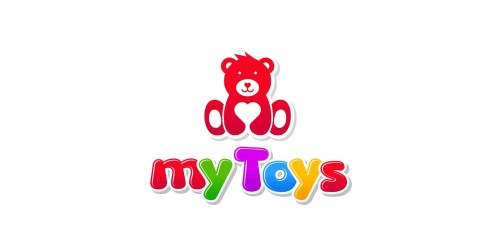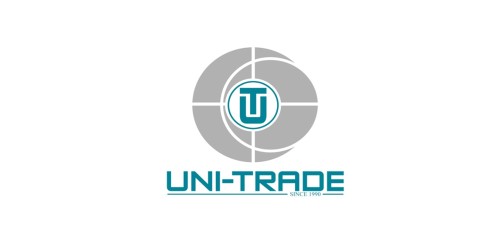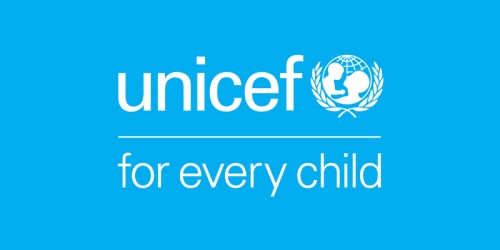
Job no: 570178
Contract type: Consultant
Duty Station: Pristina
Level: Consultancy
Location: Kosovo
Categories: Child Protection
UNICEF works in some of the world’s toughest places, to reach the world’s most disadvantaged children. To save their lives. To defend their rights. To help them fulfill their potential.
Across 190 countries and territories, we work for every child, everywhere, every day, to build a better world for everyone.
And we never give up.
For every child, knowledge
In Kosovo, there is a pressing need to address the challenges faced by persons with disabilities children, women, and persons with disabilities from minority communities, ensuring that both girls and boys, as well as men and women, receive equitable access to support, resources, and opportunities. Despite progress in recent years, discrimination, poverty, and limited accessibility to services and enjoyment of fundamental rights persist. Legislative and policy frameworks require alignment with international standards, and the establishment of effective mechanisms, such as the National Disability Council (NDC), is still a work in progress. In general, existing legislation is not yet cohesive and encompassing of all aspects of the life of persons with disabilities.
Kosovo is not a member of the United Nations (UN), and therefore cannot become a party to UN conventions. However, there are several international conventions that have been embedded in the constitution unilaterally aligning in this way the legislation like the case of the Universal Declaration of Human Rights (UDHR), Convention on the Elimination of All Forms of Discrimination Against Women (CEDAW), and Convention on the Rights of the Child (CRC) among others.
The rights of persons with disabilities have gained attention on the development agenda, leading to the initiation of the process for incorporating the Convention on the Rights of Persons with Disabilities (CRPD) into the constitution, and announcing 2022 as year of disability by Kosovo authorities. Similarly, the legislation concerning persons with disabilities is being reviewed to align with the CRPD.
The second National Disability Strategy, which is currently being developed, also aims to create an enabling environment for an inclusive society focused on equal access for all to basic services such as education, health, social welfare, and employment. Despite the progress made in recent years, challenges faced by persons with disabilities remain. As a result, it is uncertain whether Kosovo will be able to achieve Sustainable Development Goals (SDGs) targets in relation to disability and the CRPD core commitments without leaving anyone behind. Despite the fact that the Kosovo Parliament has endorsed the SDG Resolution, monitoring of the SDGs is limited due to a lack of administrative data systems for reporting on children with disabilities.
Arising from these perceived challenges, UN organizations, including UNICEF, UNFPA, and UN Women, are coordinating efforts under the Development Coordinator’s Office (DCO) to implement the Inception Phase of the UNPRPD Multi Partner Trust Fund (MPTF) initiative. This initiative aims to promote disability-inclusive development by applying an intersectional approach to each stage of the process, learning from people with diverse forms of knowledge and participation in decision making and advancing the rights of women and men, including girls and boys with disabilities in Kosovo. In particular, the UNPRPD MPTF aims at supporting the following objectives:
- Advance CRPD implementation in Kosovo by focusing on the essential preconditions for disability inclusion across sectors, translating these into concrete policies, programs, and/or services which lead to systemic changes through a cohesive, inter-sectoral approach with highlights on the impact on women and men, including girls and boys.
- Improve and increase the implementation of disability inclusive SDGs at the country level by providing fundamental support to the UN’s collective response to the SDGs – including UNCTs, governments, organizations of persons with disabilities OPDs, and civil society – to address national priorities and gaps concerning persons with disabilities in their national planning to advance the SDGs.
A stronger emphasis on evidence generation, learning, and the need for situational analyses is what drives the United Nations Partnership on the Rights of Persons with Disabilities (UNPRPD) Strategic Operational Framework (SOF) for 2020-2025. These analyses should focus on the essential “pre-conditions” that are indispensable for addressing the needs and opportunities of people with disabilities in public policy making and programming across all sectors. Given this need, the UNPRPD has also developed a Guidance Tool for Conducting Situation County Analysis of the rights of persons with disabilities that is currently being rolled out globally, including in Western Balkans (Serbia, Montenegro, and North Macedonia).
Furthermore, the purpose of this initiative is to:
Identify specific bottlenecks based on UNPRPD Guidance Tool for Conducting Situation County Analysis of the rights of persons with disabilities that need to be addressed to enable Kosovo’s progress for implementation of the CRPD and the realization of equal rights of persons with disabilities and to understand what the most catalytic force in Kosovo is. Findings from this analysis will be used to generate recommendations with all stakeholders and to identify key priorities that can provide the biggest impact in accelerating CRPD implementation.
- Get a high-level overview of legislative and policy context regarding persons with disabilities and non-discrimination, including coordination mechanisms, accountability, and monitoring; accessibility; access to disability support services and assistive devices and technology; disability assessment and determination processes; referral systems; collection and use of disability data; CRPD aligned budgeting and a stakeholder analysis.
- Support UN actors and OPDs and other relevant stakeholders to come together to get a high-level understanding of critical issues around the implementation of disability inclusive SDGs, policies, gaps and opportunities and build a base of mutual understanding to co-design programs.
- Build a base of mutual understanding and working relationships between UN entities, government, Organizations of People with Disabilities (OPD) and other civil society organizations, as well as the private sector and academia, as a basis for future co-design of joint programs
- Strengthen the capacity of above stakeholders to include and address the rights of persons with disabilities as outlined in the CRPD more effectively.
- Serve as an advocacy tool for ODPs and other civil society partners, local and international.
- Provide information on gaps in terms of disability inclusion in on-going processes and programs and recommendations to inform future UN Agency programming on disability inclusion highlighting the pervasive and intersectional nature of discrimination and inequality, serve as a base line for these programs and recommend further, in depth analysis where needed.
- Contribute to regional and global analyses.
To this end, in close cooperation with the Office of Good Governance/Office of Prime Minister (OGG), UNFPA, UN Women and in consultation with OPD’s and other UN agencies in Kosovo, UNICEF is seeking to conduct a situation analysis for persons with disabilities in Kosovo to understand key bottlenecks and barriers that persons with disabilities are phasing in Kosovo. The findings and recommendations from this exercise will support enabling an environment for better social inclusion of people with disabilities, as well as children.
The study will be conducted by an international consultant who will work closely with a national consultant and in close collaboration with relevant partners from Kosovo institutions, ODPs, civil society organizations and others as relevant. To ensure ownership of the process, a study reference group will be established and will act as a reference team of experts to provide technical support and review of the design of the study and the final report.
How can you make a difference?
Under the overall supervision of the UNICEF Child Protection Officer in close collaboration with the Programme partners (UNFPA and UN Women) and DCO/UNKT, OGG and the DPO’s the Local Consultant is expected to support the International Consultant in leading and facilitating the Induction Workshop, and to design and conduct the Situational Analysis on persons with disabilities. Both these exercises should include all potential programme partners, such as participating UN organizations, government stakeholders, OPDs, and civil society. Additional stakeholders, such as service providers, academia, donors and private sector, should be consulted during the data collection process of the Situational Analysis.
With the scope of the work, and in accordance with the UNPRPD MPTF Guiding Document and the operational guidelines of the UNPRPD MPTF Fourth Funding Call, as well as the UNPRPD MPTF’s Strategic Operational Framework (SOF) 2020-2025, the local consultant is expected to support the International Consultant including logistics, translation and localization of all materials to deliver following outputs:
- Stakeholder mapping and coordination mechanisms. Before the induction workshop is done, the international consultant with support from the local consultant are required to do stakeholder mapping exercise and ensure that women/men and marginalized groups or individuals are consulted separately, before inviting them to bigger meetings, where they might feel intimidated or may not be able to participate meaningfully due to language or other barriers.
- Induction Workshop – The local consultant is expected to support the international consultant to prepare and deliver the Induction Workshop. The purpose of the workshop is to provide basic training on the CRPD and disability inclusive SDGs, UNPRPD’s cross-cutting Approaches, preconditions for disability inclusion, and elements of the situational analysis. The Induction Workshop aims to create a common understanding and build the capacities among key central actors including OPDs ensuring that all stakeholders are informed and prepared to participate in the Situational Analysis. Note: all the materials to be used will be provided by UNPRPD.
- In line with MPTF training module and materials, conduct the UNPRPD Joint Program Induction Training: Cross-cutting Approaches and Preconditions for Disability Inclusive Development for Project partners and representatives of central institutions. The Induction Workshop is a standardized training module developed by UNPRPD’s Technical Secretariat to ensure consistency between country level stakeholders. It is important to ensure that persons with disabilities play a key role in the delivery of the workshop. The workshop should prepare the UNKT, government, OPDs, and other partners to complete the Situational Analysis in line with UNPRPD’s new Strategic Operational Framework. This six-day workshop should be delivered before the Situational Analysis is undertaken, to ensure familiarity with the CRPD and disability inclusive SDGs and understanding of UNPRPD’s Cross-Cutting Approaches and the preconditions for disability inclusion.
- Desk review/literature review: A thorough desk review should focus on reviewing available data sources, international practices, legal frameworks that include relevant legislation, strategies, policies, and other relevant documents identified during the inception stage. The review should include various reports such as reports on situation of persons with disabilities and SDG related reports by institutions, agencies, and non-governmental actors.
- Study design/Inception report: In consultation with OPDs, government institutions and UNKT the international consultant with support from the local consultant should refine and finalise the specific Kosovo analysis plan and scope (Inception Report). The plan should draw from UNPRPD MPTF Guiding Document and drawing on Situation Analysis Lessons Learnt Report, but should be adapted to Kosovo context and priorities. The Inception report should describe how the analysis will address Kosovo priorities – e.g., identify sectoral focuses that should be incorporated alongside the essential pre-conditions for inclusion and any additional areas necessary for planning beyond what is included in this guidance. In addition, the inception report shall present the final design of the methodology for data collection and analysis that will allow for collection of all relevant data with representatives from relevant institutions, OPDs, service providers, persons with disabilities (including specific consultations with children with disabilities and woman with disabilities) and other relevant groups as appropriate. The study design and the proposed methodology will be presented to the reference group.
- Data collection and analysis: Develop the guidance and data collection tools, as well as conduct and facilitate data collection from the field and conduct quantitative and qualitative data analysis. Engagement of all relevant partners throughout the process is critical to ensure ownership which should be informed by a stakeholder mapping conducting as part of the desk review. Data collection modalities and process to be designed by the consultants in the study design process, including Focus group discussions, Key informant interviews, short e-mail questionnaires. Following the completion of the fact-finding stage, the analysis should be developed in constant interaction between the researchers and the commissioning team to allow full alignment of the research exercise with the desired scope and focus of the analysis.
- Report Writing and Multi-stakeholder validation: Compile the final analytical report based on the triangulation of information from desk review and data collection exercise to draw on conclusions that are based on sound evidence and development of clear recommendations to inform interventions and transformative actions for strengthening monitoring, policy development and service provision for persons with disabilities, including children. Once the analysis is finalised, organize a workshop with all concerned stakeholders to discuss the gaps analysis and validate the recommendations for future interventions. A pre-workshop with OPDs should be conducted to discuss and explore the findings and generate OPD priorities and recommendations for future programming. The final draft report will be presented to the reference group. Upon collection of comments and revisions, the report will be finalized.
Ethical considerations:
The study will be conducted in full accordance with the following international and regional guidelines for research ethics and methods, as well as personal data protection issues:
UNICEF Procedures for Ethical Standards in Research, Evaluation, Data Collection and Analysis; UNICEF Strategic Guidance Note on Institutionalizing Ethical Practice for UNICEF Research; General Data Protection Regulation (GDPR), a regional law of the European Union (EU) requiring institutions to protect personal data and the privacy of EU citizens inside and outside of the EU. The study design must take into consideration how ethical concerns shall be addressed to avoid stigma, discrimination, any form of harm to children and their parents, protection of confidentiality, protection of rights, ensuring the dignity and welfare of all respondents.
Work Assignments Overview: Conduct mapping of stakeholders to ensure representation and inclusion of relevant stakeholders in process Prepare and facilitate 6 days workshop.
Deliverables/Outputs: Translate materials and assist International Consultant to conduct Induction Workshop
Delivery deadline: 1-30 March
Work Assignments Overview: Review of materials, legal framework, policies, studies, research, and other documentation related to persons with disabilities
Deliverables/Outputs: Desk review conducted
Delivery deadline: 5 April
Work Assignments Overview: Develop an inception report including a detailed workplan, timeframe, methodology, developed instruments and protocols for quantitative and qualitative data collection for implementation of the study
Deliverables/Outputs: The inception report is finalized. Data collection instruments and protocols developed and translated
Delivery deadline: 30 April
Work Assignments Overview: Conduct onsite visits, interviews and focus group discussion with key informants
Deliverables/Outputs: Quantitative and qualitative data collected
Delivery deadline: 15 May
Work Assignments Overview: Data analysis from consultations with key informants, onsite visits, interviews and from focus group discussions.
Deliverables/Outputs: Data analysis finalized
Delivery deadline: 30 May
Work Assignments Overview: Drafting of the report on Sit An report
Deliverables/Outputs: Report drafted
Delivery deadline: 30 June
Work Assignments Overview: Presentation of the findings & multi-stakeholder validation.
Deliverables/Outputs: Presentation conducted
Delivery deadline: 15 September
Work Assignments Overview: Finalization of the report with input and comments received from relevant stakeholders
Deliverables/Outputs: Report is finalized based on the validation workshop comments
Delivery deadline: 30 September
To qualify as an advocate for every child you will have…
- At least five years of proven professional experience in research and M&E in fields relevant to the scope of work
- Strong track record in coordinating multi-sectoral approaches programming needs of children and persons with disabilities
- Demonstrated understanding and familiarity with country disability policy and legislative framework
- Adequate understanding of the development context in Kosovo. Familiarity with and understanding of the United Nations framework in Kosovo is a strong asset.
- Excellent communication and facilitation skills and excellent report-writing skills.
- Demonstrated ability to deliver quality results within strict deadlines, through a proven track record.
Note: Persons with disabilities are encouraged to apply
Competencies - Works Collaboratively with others.
- Builds and Maintains Partnerships
- Manages ambiguity and complexity.
- Applying technical expertise
- Follows instructions and procedure.
- Administrative details:
- IT and Communication equipment required
For every Child, you demonstrate…
UNICEF's values of Care, Respect, Integrity, Trust, Accountability, and Sustainability (CRITAS).
To view our competency framework, please visit here.
UNICEF is here to serve the world’s most disadvantaged children and our global workforce must reflect the diversity of those children. The UNICEF family is committed to include everyone, irrespective of their race/ethnicity, age, disability, gender identity, sexual orientation, religion, nationality, socio-economic background, or any other personal characteristic.
UNICEF offers reasonable accommodation for consultants/individual contractors with disabilities. This may include, for example, accessible software, travel assistance for missions or personal attendants. We encourage you to disclose your disability during your application in case you need reasonable accommodation during the selection process and afterwards in your assignment.
UNICEF has a zero-tolerance policy on conduct that is incompatible with the aims and objectives of the United Nations and UNICEF, including sexual exploitation and abuse, sexual harassment, abuse of authority and discrimination. UNICEF also adheres to strict child safeguarding principles. All selected candidates will be expected to adhere to these standards and principles and will therefore undergo rigorous reference and background checks. Background checks will include the verification of academic credential(s) and employment history. Selected candidates may be required to provide additional information to conduct a background check.
Remarks:
Only shortlisted candidates will be contacted and advance to the next stage of the selection process.
Individuals engaged under a consultancy or individual contract will not be considered “staff members” under the Staff Regulations and Rules of the United Nations and UNICEF’s policies and procedures, and will not be entitled to benefits provided therein (such as leave entitlements and medical insurance coverage). Their conditions of service will be governed by their contract and the General Conditions of Contracts for the Services of Consultants and Individual Contractors. Consultants and individual contractors are responsible for determining their tax liabilities and for the payment of any taxes and/or duties, in accordance with local or other applicable laws.
The selected candidate is solely responsible to ensure that the visa (applicable) and health insurance required to perform the duties of the contract are valid for the entire period of the contract. Selected candidates are subject to confirmation of fully-vaccinated status against SARS-CoV-2 (Covid-19) with a World Health Organization (WHO)-endorsed vaccine, which must be met prior to taking up the assignment. It does not apply to consultants who will work remotely and are not expected to work on or visit UNICEF premises, programme delivery locations or directly interact with communities UNICEF works with, nor to travel to perform functions for UNICEF for the duration of their consultancy contracts.
Advertised: 05 Mar 2024 Middle East Standard Time
Deadline: 15 Mar 2024 Middle East Standard Time


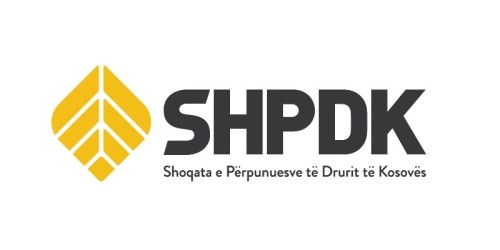
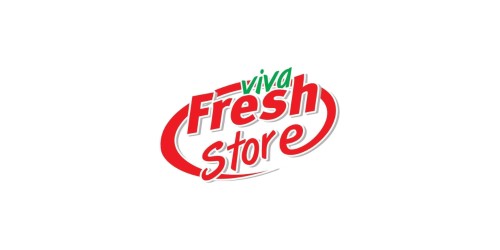
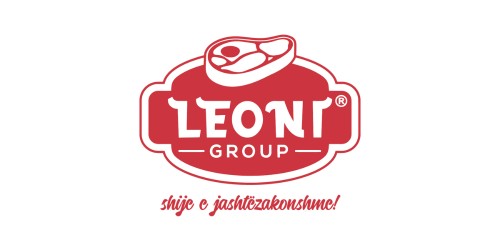



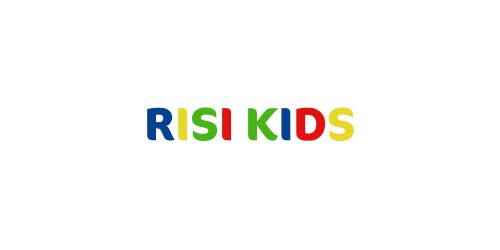
-thumbnail.jpg)
